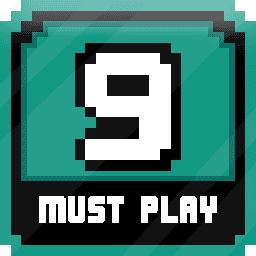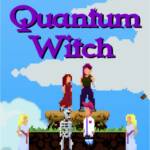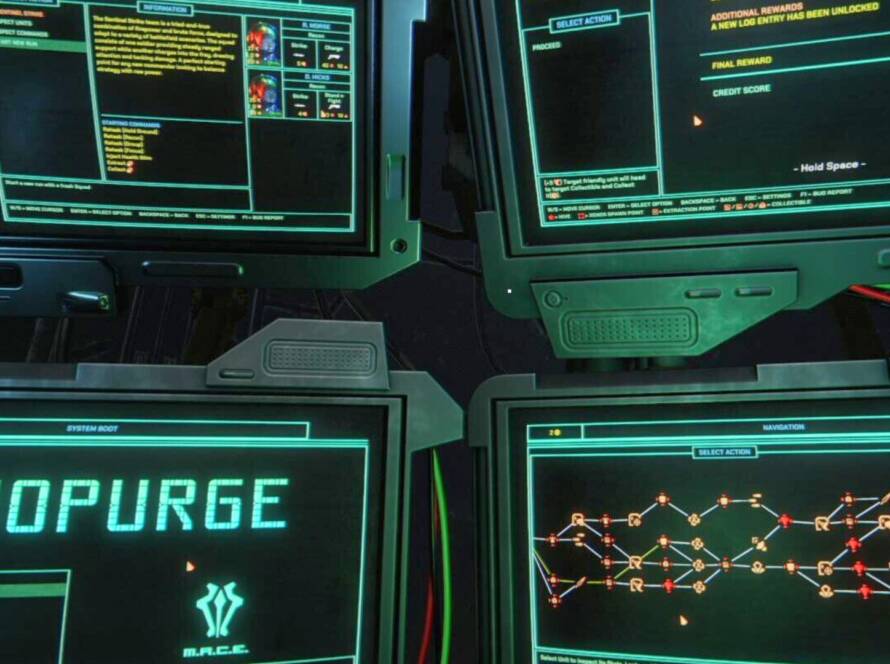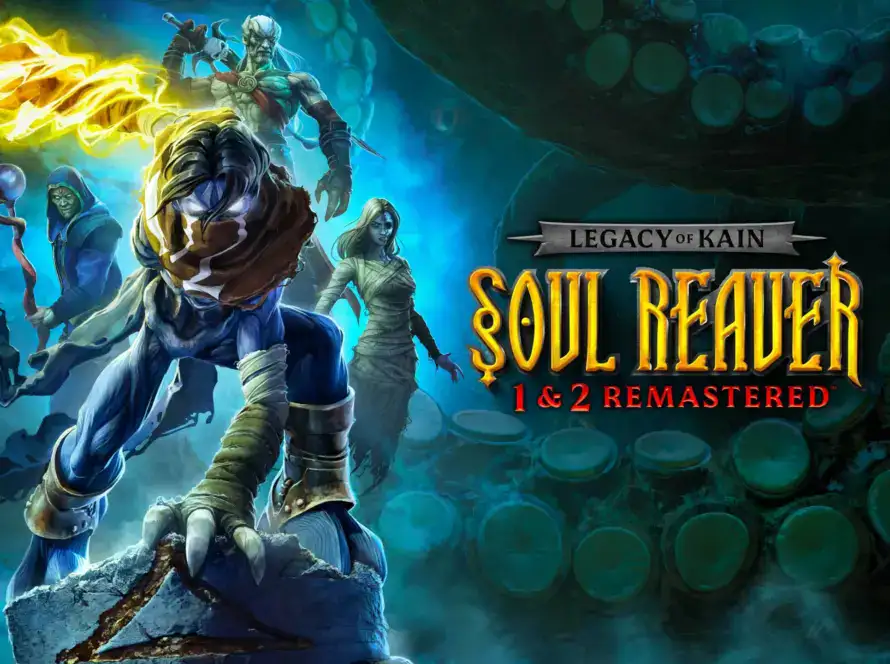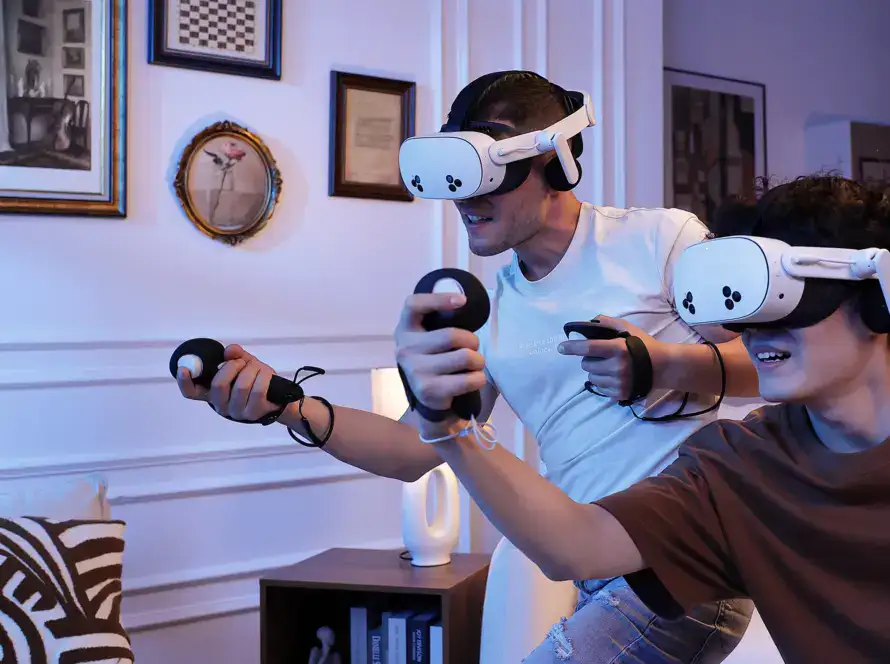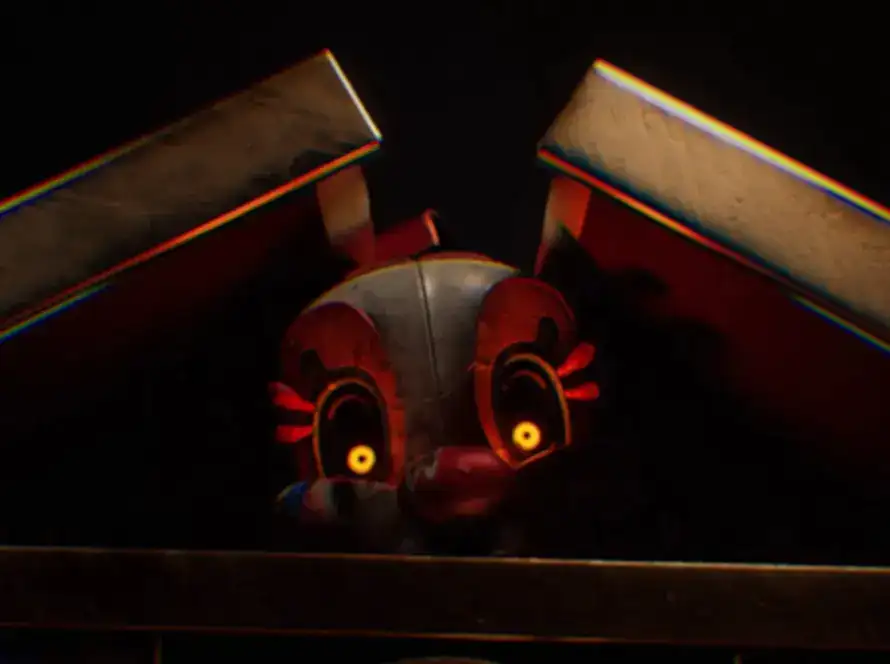Some games are meant to be fun. Some are more of an experience.
Quantum Witch though is something else entirely.
And this game is the hardest review I’ve ever had to make, because to make it justice, you must dive deeper than a simple review would allow. So this will be a review yes, but also, kind of an essay…
And if you like your games to be action-packed and take everything at face value, you might want to skip this game. But if you’re open enough, you will find just a glimpse of how brilliant this game is.
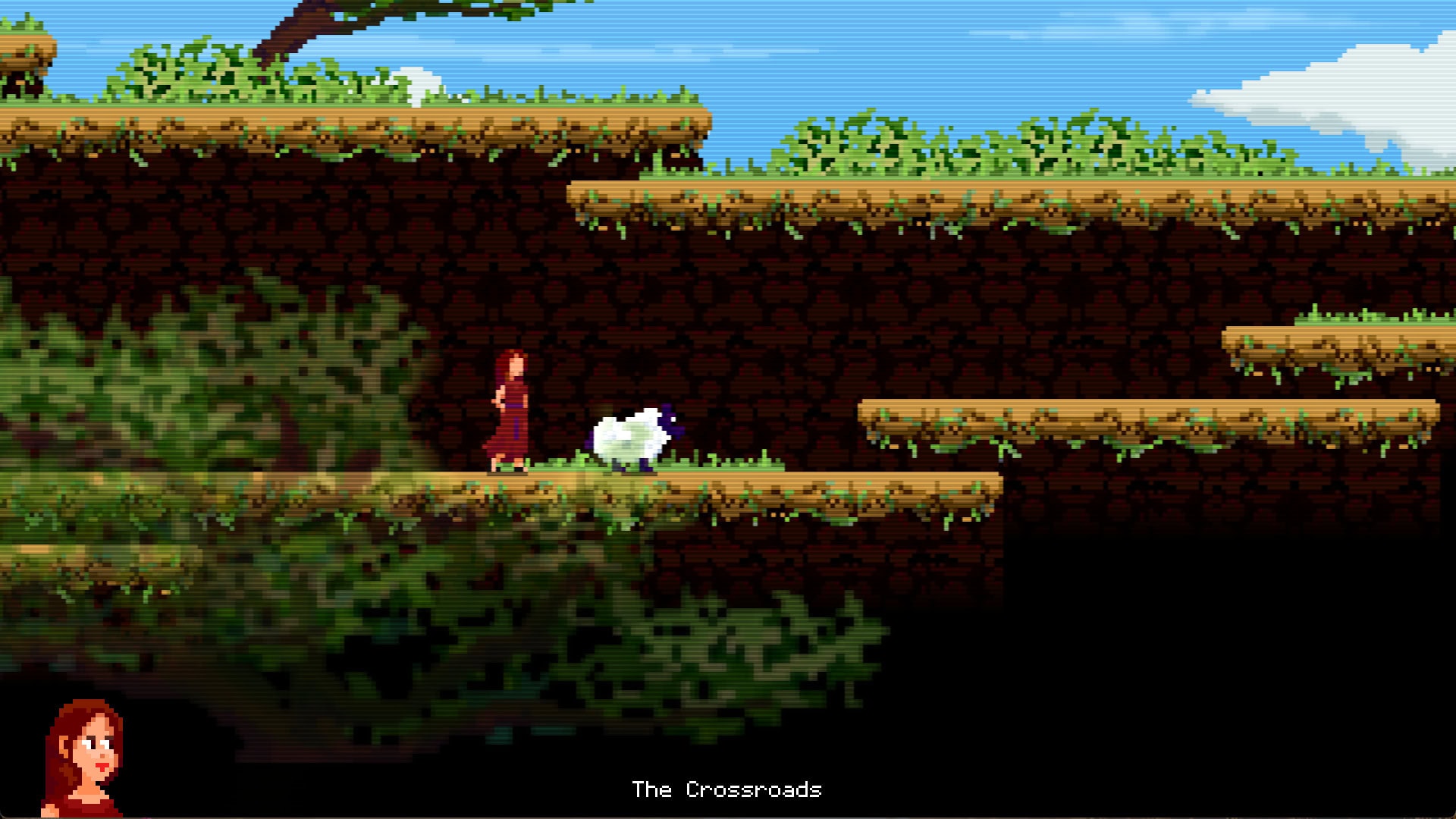
But at first glance, it’s mostly nonsense: simple visuals, poor platforming, and dialogue that’s both blunt and contemporary that feels really out of place. The only good impression the game makes at first, is its wonderful music. You might think it’s trying to be ironic. Or that it’s simply poorly made. But the longer you sit with it, the more your outlook on this game changes.
What starts as a joke of a game becomes something deeply emotional. It lowers your guard with its weirdness, makes you question every little bit of details, and then hits you with something raw. This is a game built from trauma. It’s about manipulation, dogma, confrontation, and questioning.
NikkiJay, the solo developer of this game, made a challenging story wrapped in absurdity, a story that, if you let it, starts becoming your own. Even though we will delve into some of its depth, I will omit on purpose a lot of interpretations, just so you get to experience the game through the lens of your own experiences. But I have page after page of essay-like comments on this game, so maybe later, I will release an long video essay about the philosophy of Quantum Witch.
Because this isn’t just a random quirky indie game.
It’s a manifesto in disguise.
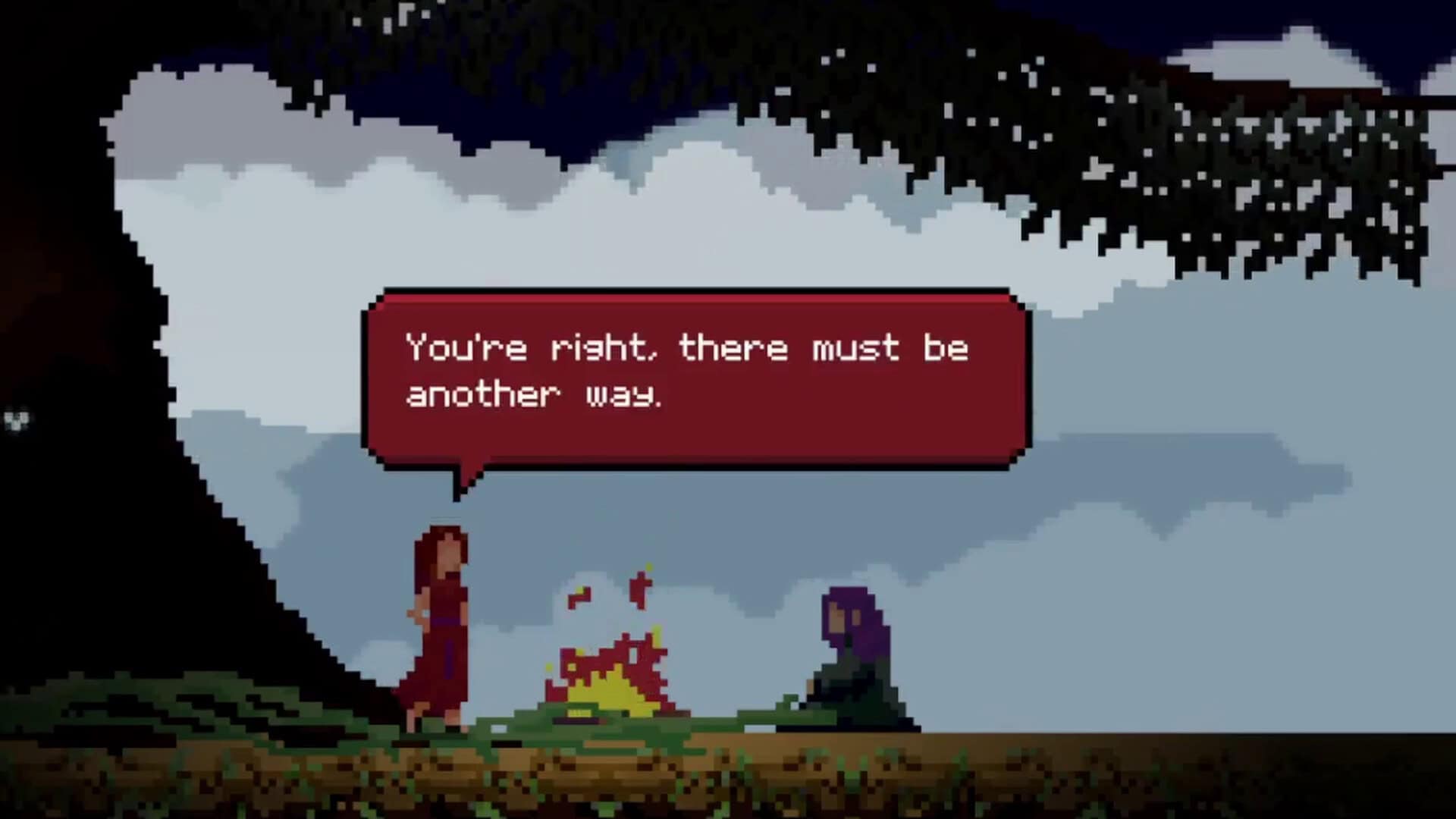
You play as Ren, a farm girl in the quaint, peaceful land of Hus. She’s gentle. She’s trusting. She believes in magic and in the old gods.
The game begins innocently: your faer, which are tiny sheepdog-like creatures, have run off, and you need to bring them back. But that lighthearted setup is the first illusion. Within minutes, Quantum Witch starts slipping into something stranger. What felt like a charming, if slightly clunky platformer, becomes something else: a mirror house of warped philosophy, distorted faith, and forgotten truths. And soon, you’re leaping between worlds. And not just spatially, but also ideologically.
What seems like a fetch quest becomes a philosophical interrogation. It’s easy to think at first that this game is just rough around the edges. But everything that feels “off”: the visuals, the strange pacing, the weirdly contemporary language, is part of the point.
It’s not broken. It’s bait.
Because Quantum Witch isn’t just trying to entertain you in the traditional sense. It’s trying to wake something up. This is a game that makes you sit back in your chair as you realize it just said something that applies to you… something it shouldn’t know.
Something maybe you didn’t even fully realize until now.
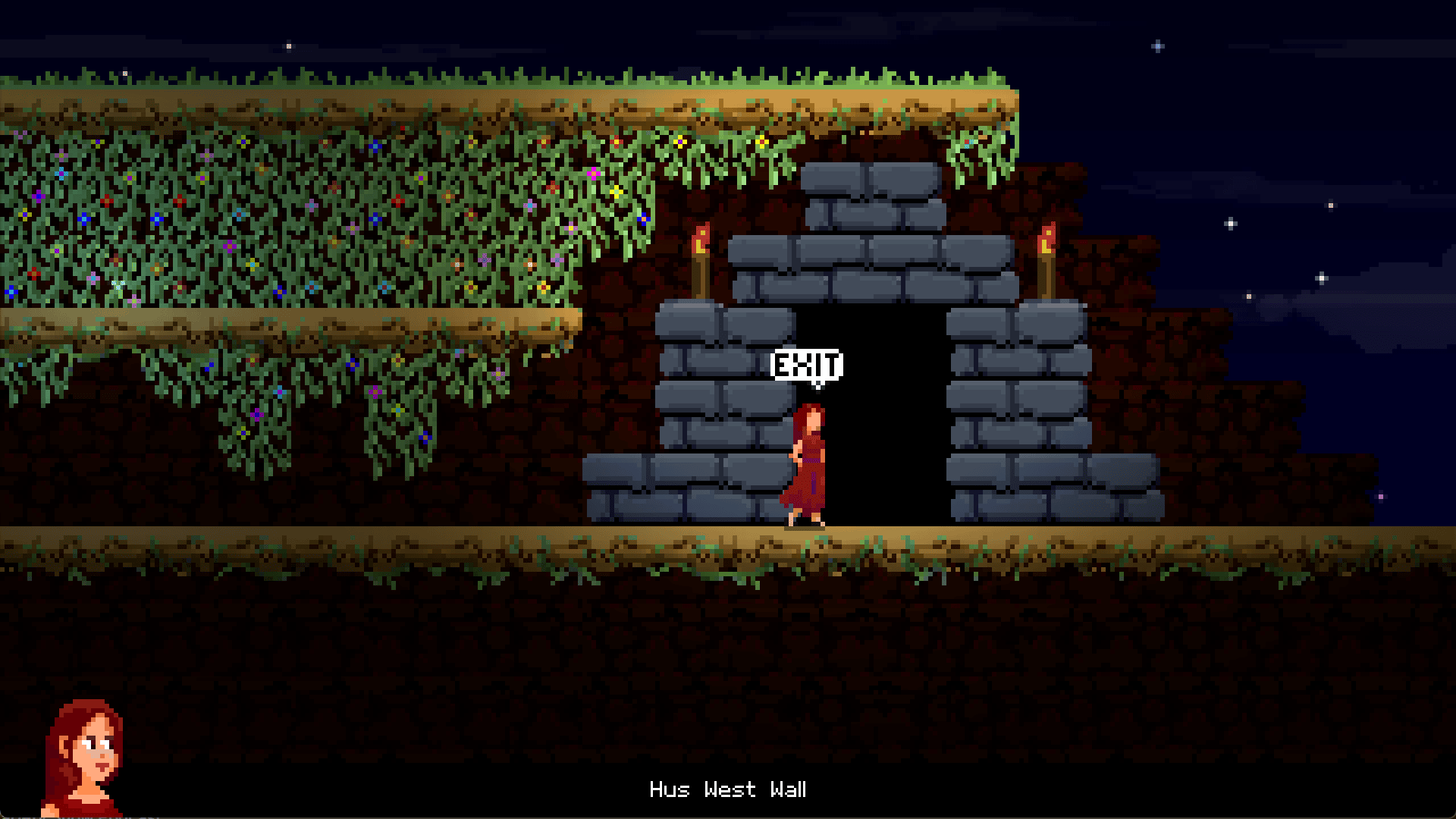
And to really understand Quantum Witch, you have to understand its creator. NikkiJay didn’t just write this game. She lived it, in a different form, under a different name, shaped by fear instead of pixels.
She was raised in a doomsday cult. One where women were seen as lesser, ambition was prideful, babies were called “little enemies of God” as they were born sinful, and free-thought was considered a threat to divine order. The authority of “God” was interpreted and enforced by eight men, who served as mouthpieces for power, a system as terrifying as it was airtight. She wasn’t allowed much… but she was allowed computers.
And in that digital space, she built her first games. Text adventures. Little stories. Escapes. And maybe even, back then, small rebellions.
Eventually she came out. She lost her family. She lost her safety net. And for a time, she was homeless. But she kept making stories, and Quantum Witch is the result of decades of wrestling with pain through creativity. This is more than backstory. It’s the engine behind the game.
Because Quantum Witch doesn’t just tell a story, it dares to recreate the emotional shape of indoctrination. It invites you to experience the systems that broke her spirit. To feel what it’s like to be afraid of thinking. To be told that questions are sins. To see your hope reframed as a threat. And it does this not with cutscenes or exposition, but with design.
At multiple points during my adventure, I stopped while looking at the world and trying to see it through NikkyJay’s eyes. And one of the best examples of that was the Pool Temple, a location in the game that sent chills up my spine when I started considering all I was experiencing there, as a cutesy and funny mirror to a terrible truth… That sense of unease is doubled up by interesting dialogs, especially when you start questioning characters and trying to rationalize a situation. Characters will often threaten or ignore you if the questions get too hard for them to handle. And when a character asks you to stop being curious… you feel a real hesitation.
When a conversation tree locks off because you challenged a worldview, you feel punished.
And when an entire village treats you like an intruder because you dared to name a truth, you begin to understand how dogmatism doesn’t always shout.
Sometimes, it just smiles and says, “don’t make trouble.”
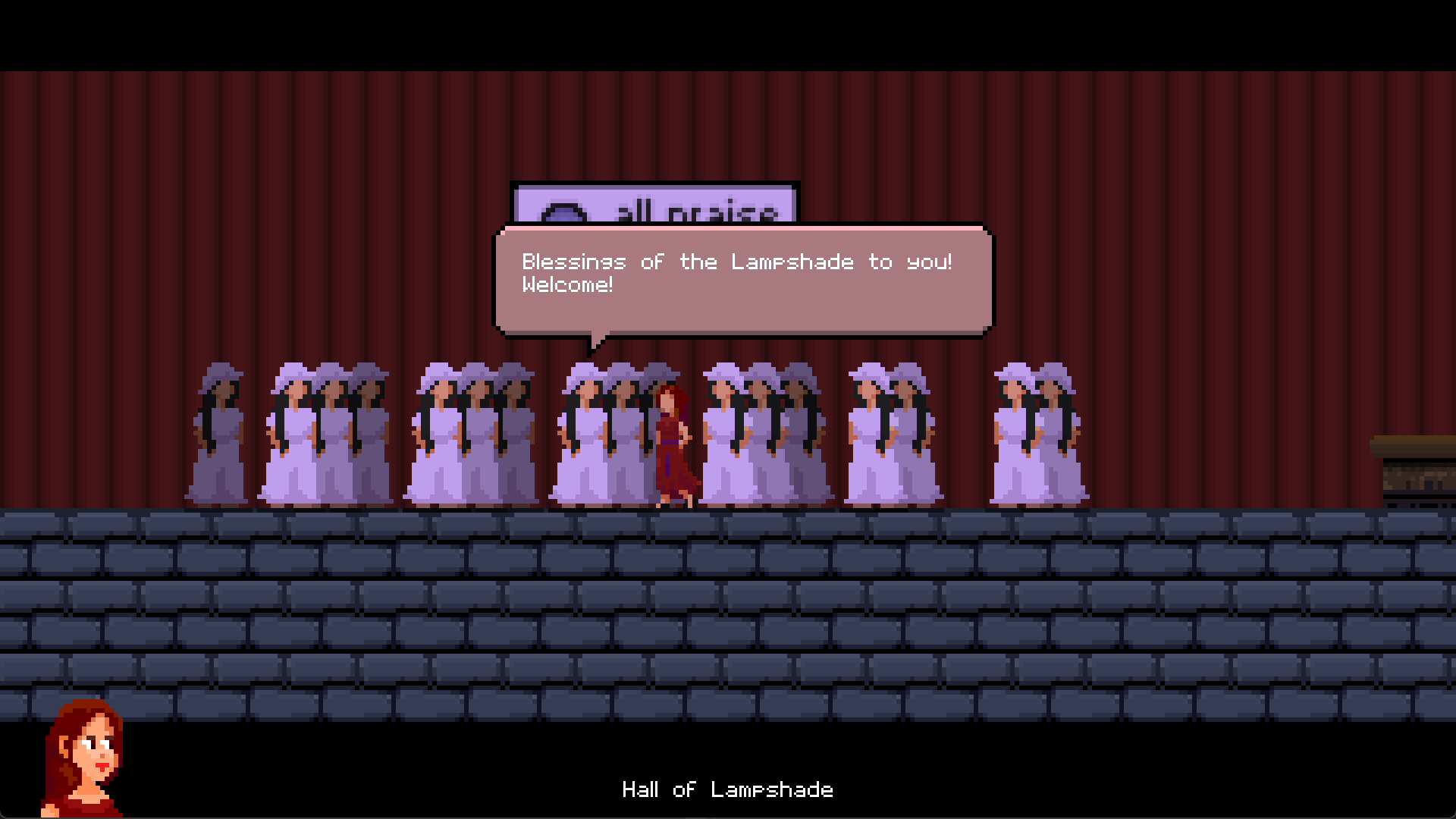
Quantum Witch talks of Gods but without ever defining them properly. The game dances around divinity with deliberate vagueness. The gods aren’t named. They’re hinted at, feared, referred to in metaphors. Because the moment you name a god, you give it shape.
You draw a line around the infinite. And that, in many belief systems, is the beginning of heresy.
In this world, language isn’t a tool for exploration. It’s a boundary. It keeps things in line: thoughts, people, reality itself. You’re warned not to name. Not to question. Not to speak aloud what you see. The more you try to articulate truth, the more the world and its inhabitants resist.
That’s how power protects itself, not with violence, but with suggestion. This is where the game feels most insidious and brilliant. It shows how dogma survives not by persuading you of its truth, but by quietly convincing you that the alternative is too dangerous to explore. You shouldn’t ask question because doubt might collapse everything. And that’s the fear cults thrive on: not fear of punishment, but fear of uncertainty.
As a player, you feel this pressure. Questions seem to corrode the world. Characters react with discomfort. Dialogue options disappear. Possibilities shrink. And if you persist… if you press too far… the game begins to punish you emotionally. Not with death or failure, but with doubt. The sense that maybe you’re the problem. Power is most effective when it convinces people to police themselves.
Here, language isn’t neutral, it’s ideological.
What’s said is what’s allowed.
What’s unspeakable becomes unthinkable.
And this, is just one of the realizations you get while playing the game.
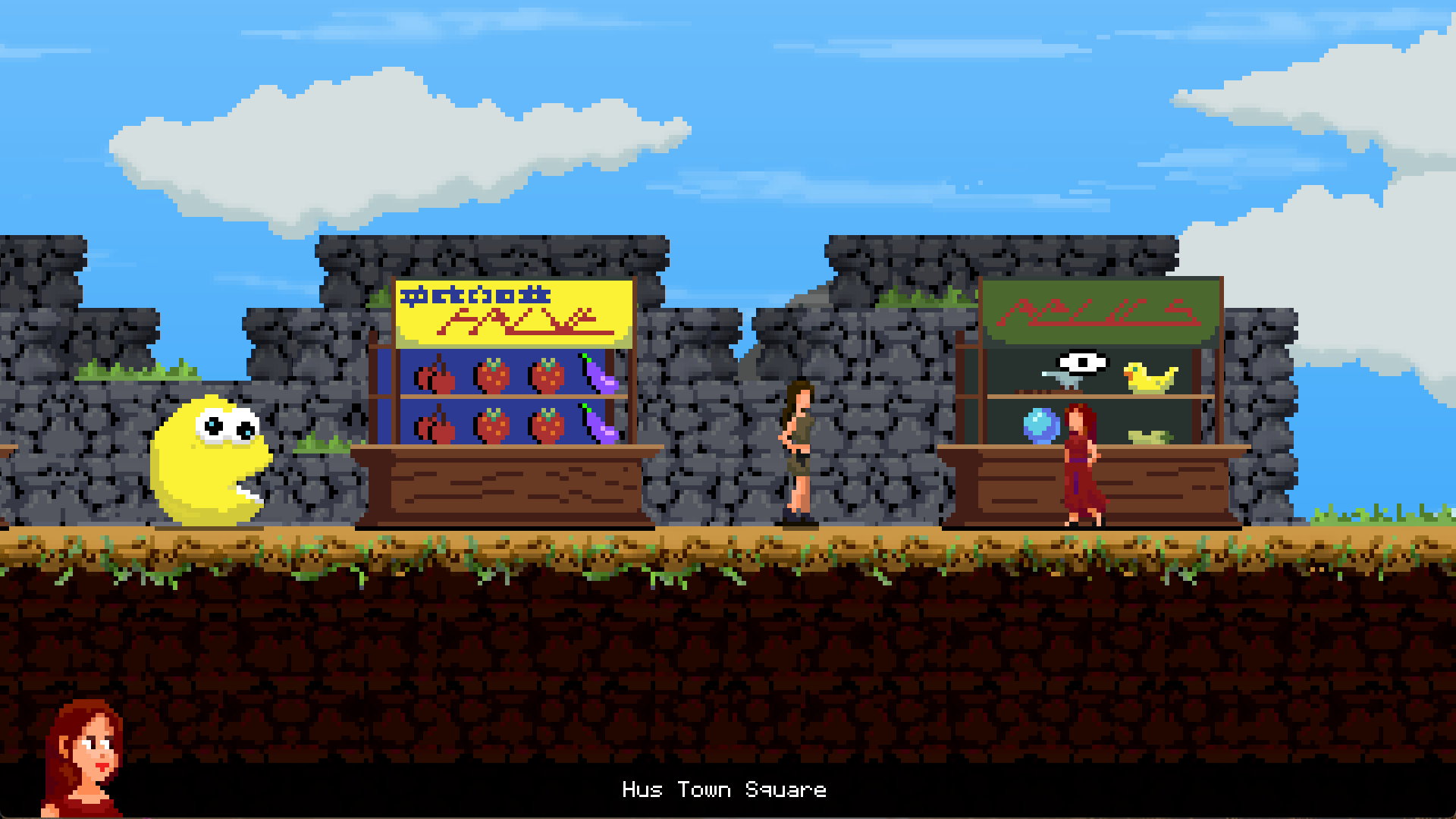
Later in your journey, you arrive in a place where everyone has surrendered themselves to simplification. You meet a village of people who no longer carry names. Not real ones. Not personal ones. Instead, they wear labels like armor: “Vending Machine Girl.” “Wooden-Leg Guy.” Titles that describe one trait, one moment, one detail… as if the rest of them no longer exists, or maybe never did.
At first, it seems funny. The names are so specific, so absurd, you assume it’s just another layer of surreal comedy. But the tone is off. No one laughs. The characters repeat their designations with total seriousness. You start to realize: these aren’t nicknames. These are identities that have been polished, and filed down until only utility remains.
And that’s when the metaphor hits hard. These people haven’t just been labeled by the world. They’ve internalized those labels and made them permanent. This is what happens when dogma succeeds, not just in silencing your voice, but in convincing you that your complexity is a liability. That who you are is dangerous. So instead, you become “the one with the limp.” “The one who makes tea.” “The one who prays.” Because specificity invites scrutiny. And scrutiny invites doubt.
This moment in the game reflects what’s called performative identity: how the roles we play can eventually shape who we are, until we forget there was ever a version of ourselves before the performance began. The saddest part is, none of these characters seem forced. There’s no resistance. They’ve accepted these new names as protections. Simpler people are easier to manage. And a simplified self is easier to endure. By the time you leave this area, the emotional weight lingers. These people aren’t free. They’re not even imprisoned. They’re emptied. They’ve rewritten their own scripts to avoid the possibility of becoming a threat, not to others, but to the fragile idea of order they’ve been told to preserve.
And through it all, the game is asking you: what name have you accepted?
What complexity have you hidden just to fit and survive?
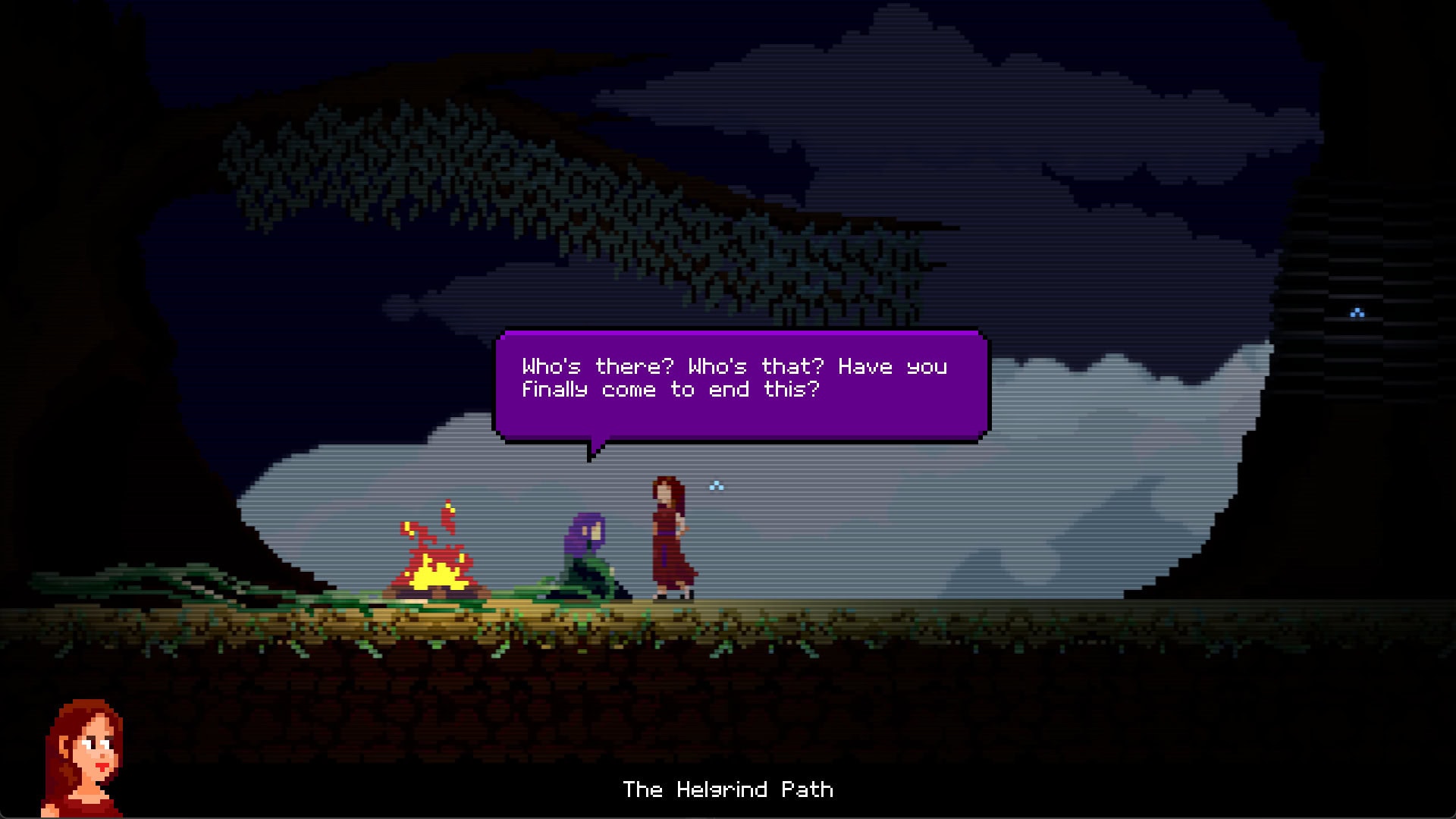
If there’s one thing Quantum Witch makes painfully clear, it’s that choice doesn’t exist in a vacuum. Every option is shaped by pressure: social, emotional, spiritual. The game constantly asks you to choose. But it also shows you just how much weight those choices carry. Not because they trigger a mechanical consequence. But because they expose you.
You aren’t just picking a dialogue option. You’re picking a side. You’re either upholding the illusion, or breaking it.
And with each decision, you’re reminded: rebellion isn’t just dangerous. It’s lonely. This is a world where dreaming is treated like a sickness. Where curiosity is framed as cruelty.
People warn you with genuine concern. Don’t ask too much. Don’t dig too deep. Keep things peaceful. The subtext is always the same: keep the world small, or risk losing everything. It’s not a morality system as there are no points to earn. Instead, the game creates emotional stress. It forces you to live with the discomfort of questioning a belief system that everyone else has already accepted, not because it makes sense, but because it’s safer that way.
This mirrors the real-world psychological concept of cognitive dissonance. When faced with information that threatens a long-held belief, people will often rationalize, deflect, or outright reject it rather than face the pain of rewriting their internal narrative. In Quantum Witch, you don’t just see that happening. You feel it. The game’s world is full of contradictions: comedic gods, silly metaphors, mechanical weirdness, but that’s the point. It’s not trying to be cohesive. It’s trying to provoke. And if you’re paying attention, you’ll realize the absurdity isn’t in the world. It’s in the logic you’re being asked to accept.
Do you preserve the system, knowing it’s built on fear?
Or do you challenge it, knowing it might cost you everything?
That’s where Quantum Witch is at its most powerful, not in giving you control, but in forcing you to confront the cost of having it.
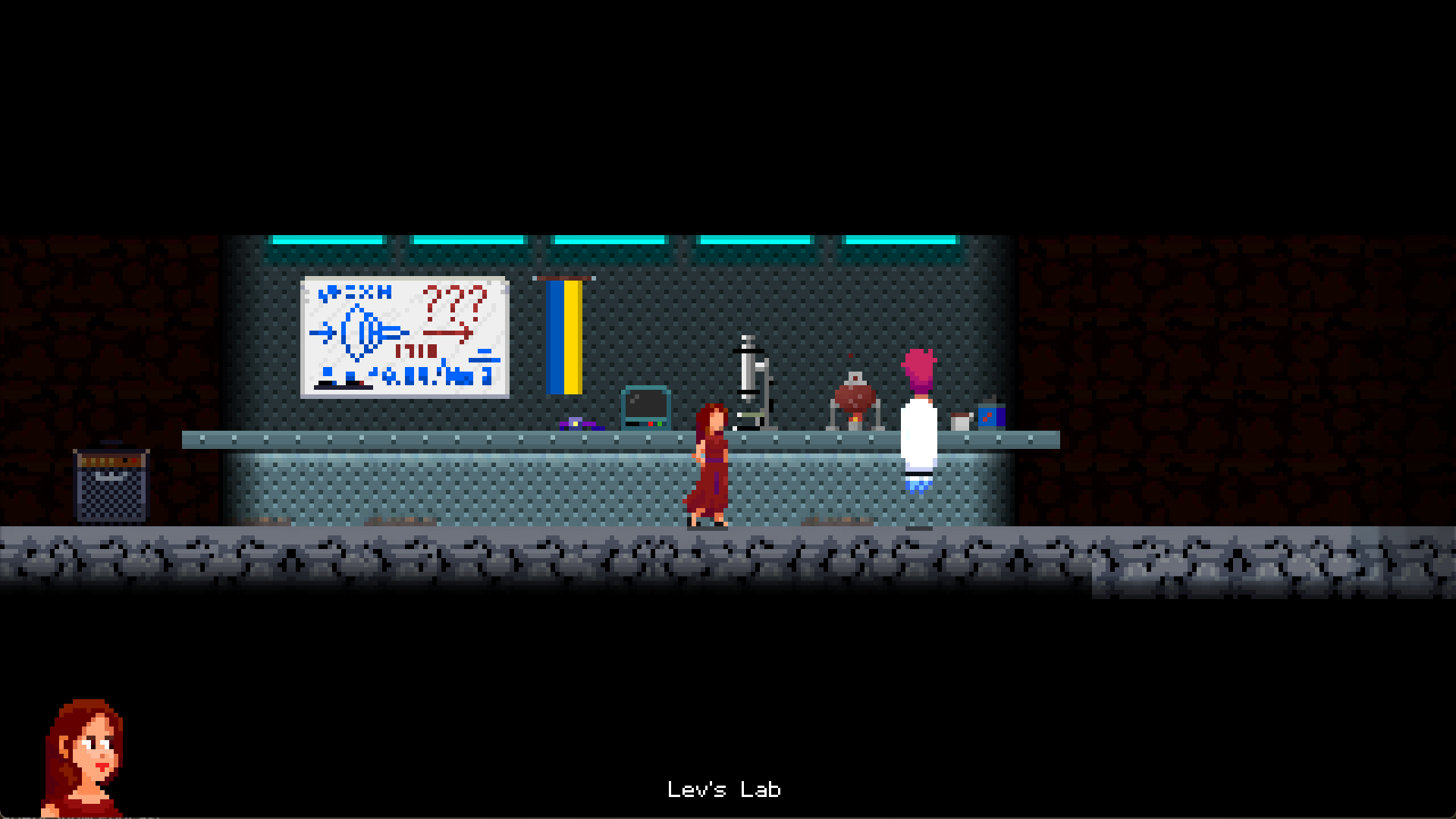
At some point in the game, you also unlock a magical ability that doesn’t make you stronger in any traditional sense. What it gives you is access to new paths, not by changing the world around you, but by reframing how the world was always meant to be seen. You’ll spot a platform in the background, maybe a piece of architecture you assumed was just decorative. But with this new ability, you can shift your perspective: not the camera, but the logic of the world. Suddenly, that distant object is interactable. It only lasts for a few seconds. But those seconds are a revelation.
This mechanic isn’t just clever metaphor for cognitive breakthrough. For how the world doesn’t need to change for truth to appear, all you have to do is look at something differently. You realize you weren’t blind. You were complacent. In most 2D games you accept what is “foreground” and “background”. And the game rewards you with secrets, for shifting your frame of thinking.
The building was always there.
The truth was always there.
You just weren’t ready to think about it that way.
And that few-second window when your power is active? That’s where belief meets action.
Where insight meets risk. It’s not enough to see what others don’t. You have to move, jump and trust that what looked impossible during your playthrough can now be interacted with.
This mechanic, more than any dialogue tree or cutscene, captures the essence of Quantum Witch: that perspective is power. And if you want to shift your perspective of the world, all it takes, is a leap of faith.
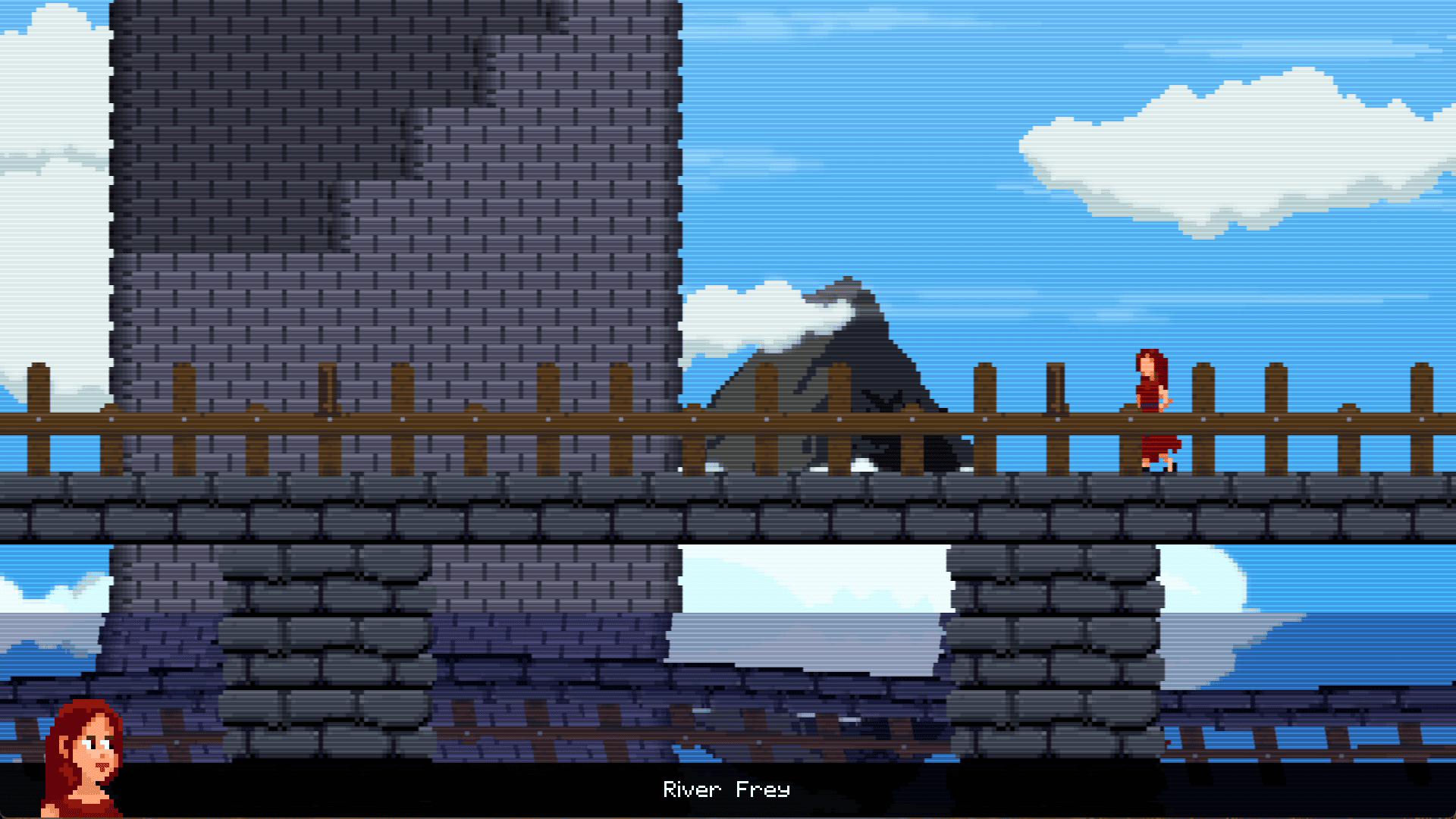
And then, just when you think you’ve seen everything Quantum Witch has to say, it blows your mind again. You start your second playthrough. You make different choices and poke at conversations you left alone the first time. Find secrets and whole paths that you never expected would be there. And suddenly, entire new outcomes emerge, endings that were invisible before, with dozens of branching paths, and layers of consequences that quietly waited for you to return with new intent.
This isn’t just about replayability. It’s about reinforcement. The game is reminding you, in the most elegant way possible: that perspective is everything. The crude art, the strange voices, the jarring tonal shifts… all of it becomes part of something greater. The package might be imperfect, but the heart inside it? It’s beating furiously.
So yes! If you judge this game on traditional metrics alone, it has flaws. The platforming is shallow. The mechanics are simple. The visuals feel uneven. But Quantum Witch isn’t trying to compete with polished indies or big-budget adventures. It’s doing something harder. It’s trying to show you the inside of someone’s mind, someone who survived something most of us can’t imagine, and it’s doing it with humor, style, and a rare kind of narrative courage.
This isn’t just a story. It’s a deeply intimate conversation with its creator, NikkiJay. A therapeutic release disguised as a game. And if you’re open to what it’s trying to say, if you’re willing to think, reflect, and maybe even ache a little, you’ll walk away not just with a new ending…but with an ever so slightly different version of yourself.
If you made it this far, Thank You!
Quantum Witch isn’t just a game. It’s a conversation, and a manifesto for free thought.
A deeply reflective experience.
A piece of someone’s truth.
And don’t get me wrong, it won’t be for everyone.
But for the ones it is for… it might just stick with you for a long while.
And don’t forget: the real courage is in the questions you dare ask.
Positives
💚 One of the most unique and emotionally honest games of the year.
💚 A brilliant use of absurdity to deliver deeply personal and philosophical themes.
💚 Mechanics and narrative are metaphorically intertwined.
💚 Powerful reflection on belief, control, and identity.
💚 Replayability through branching “waveform” outcomes and multiple endings.
💚 Quirky writing with some surprisingly funny moments.
💚 Beautiful, haunting soundtrack that supports every mood shift.
💚 It’s short, but it lingers in your mind for days!
Negatives
❌ Platforming is basic and sometimes clunky.
❌Some tonal shifts may feel jarring or inconsistent for new players.
❌ The message may go unnoticed if you play it at surface level.
❌ It takes a certain kind of player to enjoy this game.
Co-owner of IndieCritical, I have made it my mission to spread indie games at scale, to help out the ones that do so much for our beloved medium.
Written by

Kevin Fernandes



